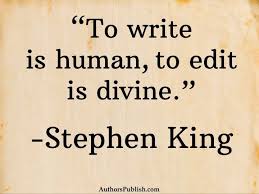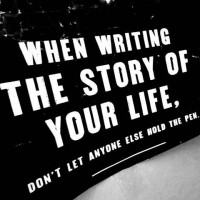Here is a list of awards and grants for writers, for a variety of genres, demographics and experiences. There are competitions for writing for diversity and social change, themed writing, translations, a residency in China, and some prestigious awards. Some are for published work. All pay writers and none charge an entry fee.
The 4th Crystal Ruth Bell Residency
This is a call for a funded residency in Beijing for November and December 2017. They want proposals from artists, including poets and writers, for projects to pursue in Beijing around the theme of ‘Care’. The proposal should reflect some of the things Crystal Ruth Bell’s interests and driving forces: generosity, loyalty, friendship, justice and bikes.
Value: $1,000 research stipend, living/working space, travel and Visa costs, material and production stipend and a research stipend, open studio exhibition
Deadline: 17 July 2017
Open for: Individuals and duos of all nationalities
Details here.
Betjaman Poetry Prize
This is for 10-13-year old poets in the UK. Students must write a poem on the theme ‘Place’, widely interpreted; no restrictions on style or length. Teachers can enter their whole class.
Value: £1,000 (£500 for the winner and £500 for the English department of their school); £50 each for two runners-up; Eurostar tickets to Paris, Brussels or Lille for the top three poets; book tokens, poetry workshop and publication; teachers who enter their classes join a prize draw to win a poet visit
Deadline: 31 July 2017
Open for: 10-13-year-old poets who are residents of the UK
Details here.
Starkey Flythe Jr Poetry Prize
This is for poets in Georgia or South Carolina. It celebrates Starkey Flythe Jr.’s commitment to poetry in the CSRA and the surrounding region. Send up to 3 poems of up to 30 lines each.
Value: $500, $250
Deadline: 31 July 2017
Open for: Poets in Georgia or South Carolina
Details here.
Budleigh Salterton Literary Festival
This is for UK residents. Write a short story (up to 2,000 words) or poem (up to 600 words) with the title ‘Being There’. The work must reflect the theme, directly or indirectly.
Value: First prizes are £1,000 for 17+ years; £250 for 12-16-year-olds; £100 for 7-11-year-olds
Deadline: 31 July 2017
Open for: All ages, professions and nationalities resident in the UK from 7+ years of age
Details here.
Speculative Literature Diverse Writers/Diverse Worlds Grants
The Diverse Writers grant is to support new and emerging writers of speculative fiction from underrepresented groups, including writers of color, disabled, women or working-class writers. The Diverse Worlds grant is for work that best represents a diverse world, irrespective of the writer’s background. Writers may apply for both grants. Preference will be given to proposed book-length works (novels, short story collections). See their guidelines for other grants through the year.
Value: Two grants of $500 each
Deadline: 31 July 2017
Open for: Underrepresented writers, and writers whose work represents a diverse world
Details here.
Duende Translation Contest
This is the magazine’s first ever competition for translated poetry. Send 1-3 poems, up to 6 pages.
Value: $300, $150
Deadline: 31 July 2017
Open for: All translators
Details here.
International Kosciuszko Bicentenary Competition
This competition celebrates the bicentenary year of the Polish humanitarian hero, Tadeusz Kosciuszko, in Australia. Entries can be in Polish or English. Entries can be in literature, music and graphic arts, and are in two categories – adults, and high school students (aged 12-18). Submit original poems or stories (up to 1,000 words). Entrants may submit up to 3 works, provided they depict 3 different episodes of Kosciuszko’s life.
Value: AU$1,000, AU$500, AU$300 for adults; AU$300 for children
Deadline: 31 July 2017
Open for: Adults and high school students (aged 12-18)
Details here.
GAWP! Green Alphabets Writing Prize
This prize, for inspirational writing about the environment, is free for writers under 16; others have to pay for entry. Choose any letter of the alphabet, and use it in any form of writing (prose or poetry; can include visual art) on a green theme. Submit poems up to 40 lines or prose up to 500 words.
Value: £200 for under-16s
Deadline: 31 July 2017
Open for: All writers; free for those under 16
Details here.
Leeway Foundation’s Art and Change Grant
This is for women or trans artists, including writers, working in the Delaware Valley region, who are working on art for social change project that impacts a larger group or community. Writers should have financial need and the project must be supported by a change partner (person, organization or business that is part of the project in some way).
Value: $2,500
Deadline: 1 August 2017
Open for: Those who identify as women or trans artists, in the Delaware Valley region
Details here.
Delaware Division of the Arts: Individual Artist Fellowships
This is for Delaware creative artists. Eighteen disciplines are offered for Fiscal Year 2018, including fiction, creative non-fiction, poetry and playwriting. Writers are awarded $3,000 and $6,000 for the Emerging and Established categories; the $10,000 Masters category is open for Dance, Jazz and Music categories for the 2018 round of applications.
Value: $3,000, $6,000
Deadline: 1 August 2017
Open for: Delaware artists aged 18 or above
Details here.
Costa Short Story Award
This is one of the most prestigious competitions for UK writers. Submit a story of up to 4,000 words. There is no set theme, but the writing should be bold, different and original to stand out. Entrants must be able to attend the awards ceremony if they are shortlisted. Value: £3,500, £1,000, £500
Deadline: 4 August 2017
Open for: UK residents aged 18+; see guidelines for detailed residency requirements
Details here.
Pockets Annual Fiction Contest
This is a Christian children’s magazine, for 6-12-year-olds. There is no set theme for the short story. It must be 750-1,000 words. Hard copy submissions only.
Value: $500 and publication
Deadline: Postmarked no later than 15 August 2017
Open for: All writers except past winners
Details here.
Harville Secker Young Translators’ Prize
This is a prestigious prize by Harville Secker, an imprint of Penguin Random House – publishers of Haruki Murakami, Karl Ove Knausgaard, J M Coetzee and Jo Nesbo. Korean will be the focus language for this year’s prize. Entrants must translate a selected short story by Han Yujoo. Up to two translators can translate the text. Hard copy submissions only.
Value: £1,000, a selection of Harvill Secker titles, participation in a Writers’ Centre Norwich mentorship with the translator Deborah Smith
Deadline: 28 August 2017
Open for: Translators aged 18-34, from any country
Details here.
PEN/Phyllis Naylor Working Writers Fellowship
This award is for a work-in-progress by a children’s/young author writer, who is in financial need, and who has had at least one children’s/YA book published in the US – the novel must have been warmly received by critics, but not generated a sufficient income to support the author. The judges will be looking for candidates whose work has not yet got broad readership. Applicants must send 50-75 pages of their work-in-progress as part of the application. No graphic novels or picture books.
Value: $5,000
Deadline: 15 September 2017
Open for: Children’s/YA fiction writers in financial need, who have had at least one book published by a US publisher
Details here.
Cha International Poetry Prize 2017
This prize celebrates the 10th anniversary issue of Cha and the 20th anniversary of Hong Kong’s handover, and is in collaboration with PEN Hong Kong. Each poem must be a translation of (or an adaptation of/a response to/a comment on) a text from/about Hong Kong or China, written originally in English or Chinese, into a poem that is about contemporary Hong Kong. Poets can submit up to 2 poems, of up to 60 lines each.
Value: $1,501; $800; $400; five Commended Prizes, each $100, and publication
Deadline: 15 September 2017
Open for: All poets
Details here.
Awards for published work
The Asher Literary Award
This is a biannual award for a female Australian writer, whose published work (fiction, literary non-fiction – biography, autobiography, essays, histories, literary criticism or analytical prose but excluding edited and compiled publications – children’s literature, poetry, creative writing for performance, screen or new media) carries a strong anti-war message. The work may be published overseas during the eligibility period. Entries must be publicly available prior to or at the time of entry.
Value: AU$12,000
Deadline: 19 July 2017
Open for: Female Australian citizens or permanent residents aged 18 or over
Details here.
Great Lakes College Association New Writers Award
This award, in three categories – fiction, creative non-fiction and poetry – honors a first published work in that genre by a US or Canadian writer. Winners are invited to tour several of GLCA’s member colleges for readings, visiting classes, lecturing, conducting workshops and publicizing their books. Entrants must commit to visit member colleges that extend invitations.
Value: At least $500 for each college visited, and travel expenses, stay and hospitality
Deadline: 25 July 2017
Open for: US or Canadian writers who have had their first work published in the US or Canada
Details here.
PEN/Edward and Lily Tuck Award for Paraguayan Literature
The award for published work carries a cash stipend of $3,000 for the living author of a major work of Paraguayan literature. Both established and emerging writers are eligible. Another $3,000 is given to the winning translator in order to bring the work from Spanish or Guarani to the English-speaking world. For the current cycle, they are accepting works of published Paraguayan fiction.
Value: $3,000 for a writer and $3,000 for a translator
Deadline: 15 August 2017
Open for: Paraguayan writers and translators of published fiction
Details here.
The Ernest J. Gaines Award for Literary Excellence
This prestigious award for an African-American author’s published work of fiction (novel or a collection of short stories) published in 2017; galleys will also be accepted. The nominee must be a rising author, yet not widely known for their work.
Value: $10,000
Deadline: 15 August 2017
Open for: African-American US citizens
Details here.


